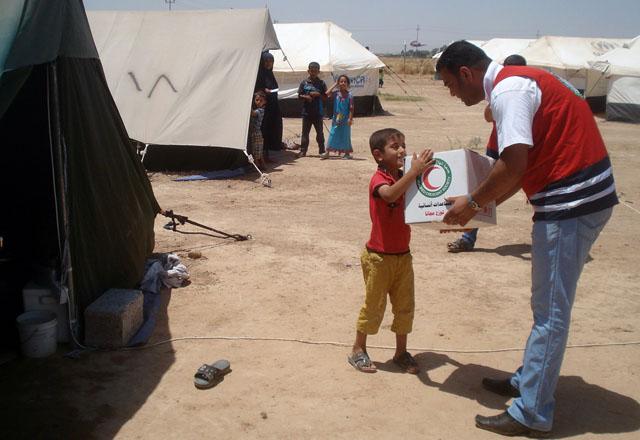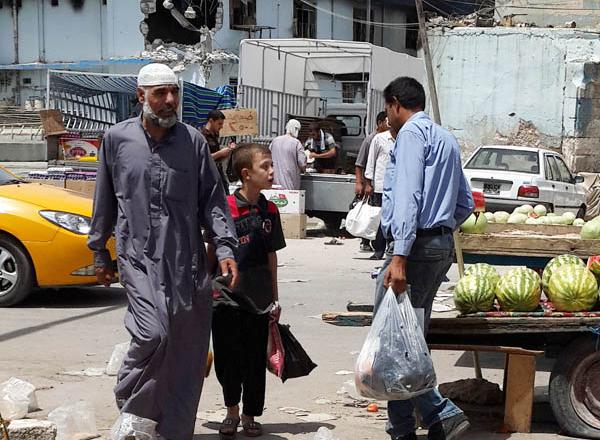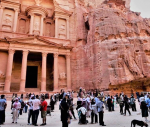You are here
Iraqi factions hit new delay in forming gov’t
By Reuters - Jul 13,2014 - Last updated at Jul 13,2014

BAGHDAD — Iraq’s parliament failed on Sunday to break a political deadlock that is holding up the formation of a new government to tackle an Islamist-led insurgency raging less than 80km from Baghdad.
After a brief session, parliamentary officials put off until Tuesday efforts to reach agreement between Shiite, Sunni and Kurdish politicians on the posts of prime minister, president and parliamentary speaker.
Prime Minister Nouri Al Maliki, whose State of Law coalition is the largest individual list in parliament, is seeking a third term but faces opposition from Sunnis and Kurds who say he has ruled for the Shiite majority at the expense of minority communities. Even rival Shiite parties want to unseat him.
The political impasse has been given added urgency by the Islamist-led insurgency which swept through Sunni provinces of northern Iraq last month, encouraging Maliki’s opponents to try to force his departure.
Bomb attacks struck the capital and its outskirts after the inconclusive session.
A blast near a busy street in the southwestern district of Bayaa killed three people and wounded seven, police and hospital sources said. In Yusifia, 15km south of the capital, a bomb went off near a crowded market, killing another three people, medics and police said.
‘Jeopardising Iraq’s unity’
The disagreement over Maliki’s future appeared to be blocking progress on the other political posts.
Sunni politicians said the main Sunni bloc put forward Salim Al Jabouri, a moderate Islamist, as their candidate for speaker, but accused Maliki of effectively torpedoing their proposal by linking it to their acceptance of his bid for a third term.
“We have presented our candidate for speaker and done what we should do,” said outgoing speaker Osama Nujaifi. “We hold the other blocs responsible for the delay.
“Once we manage to complete the democratic process to form the government, this would help to stop the great destruction happening in Iraq, which is jeopardising the country’s unity.”
An arrest warrant on terrorism charges was issued in 2011 against Jabouri, who was serving on parliament’s human rights committee at the time. He had confronted Maliki over abuses against prisoners in special jails in the fortified Green Zone of central Baghdad where parliament is also located.
The charges were dropped after the April election amid rumours that Jabouri would back Maliki to remain as prime minister. But Saleh Mutlaq, a prominent Sunni politician, said that kind of deal would be rejected by many of his fellow Sunni lawmakers.
“We have presented Salim Al Jabouri and Maliki put a condition — in order to approve Jabouri as speaker, he himself should be approved as prime minister,” he said. “This is something we don’t accept.”
Iraq’s political elite are under pressure from the United States, the United Nations and Iraq’s own Shiite clerics to reach agreement so politicians can deal with the insurgency and prevent the country fragmenting on sectarian and ethnic lines.
The UN special envoy to Iraq, Nickolay Mladenov, said the country could plunge into chaos if parliament failed to move forward on a government in Sunday’s session. Violent deaths last month reached more than 2,400 — a level comparable to the worst of the bloodshed seen during Iraq’s 2005-2008 sectarian war.
Two-hundred and thirty-three out of 328 deputies attended Sunday’s short meeting, a significant improvement on the July 1 session, when only a third turned up.
Fallujah fighting
With politics in Baghdad paralysed, and Maliki continuing in a caretaker role, the fighting has raged on. Shelling and helicopter fire killed eight people and wounded 14 in the city of Fallujah, west of Baghdad, a hospital spokesman said.
Militants from the Al Qaeda offshoot now known as the Islamic State seized swathes of Iraq’s northern provinces in a two-day offensive last month and have consolidated their grip in western Iraq in places such as Fallujah, which they overran in January.
The Sunni Islamist insurgents attacked the town of Dhuluiya, about 70km north of Baghdad, early on Sunday, seizing local government buildings, police and witnesses said.
They said militants in 50 to 60 vehicles stormed the town at 3:30am (0030 GMT), taking the mayor’s office and municipal council building and trying to capture the police station. Police and local tribes were fighting them, the sources said, and four police, two militants and two civilians were killed.
Maliki’s military spokesman said the army had retaken the towns of Sadur, Nawfal and parts of Muqdadiya after days of fighting in the area, northeast of Baghdad.
He was speaking a day after government forces launched an assault to repel Islamic State militants from a military base on the edge of Muqdadiya, which the rebels had attacked with artillery, mortars and captured tanks and Humvees.
In the predominantly Sunni town of Ishaqi, 100km north of Baghdad, a roadside bomb exploded on Sunday afternoon outside the home of a police major general, killing four members of his family, local police said.
Related Articles
Iraq’s new parliament postponed its next session for five weeks on Monday, extending the country’s political paralysis in the face of a Sunni Islamist insurgency which claimed the life of an army general on the northwestern outskirts of Baghdad.
Iraqi politicians named a moderate Sunni Islamist as speaker of parliament on Tuesday, a long-delayed first step towards a power-sharing government urgently needed to save the state from disintegration in the face of a Sunni uprising.
Kurdish ministers boycotted Iraq’s caretaker Cabinet and authorities in Baghdad halted cargo flights to two Kurdish cities on Thursday in an escalating feud between the Kurds and the Shiite-led central government.














